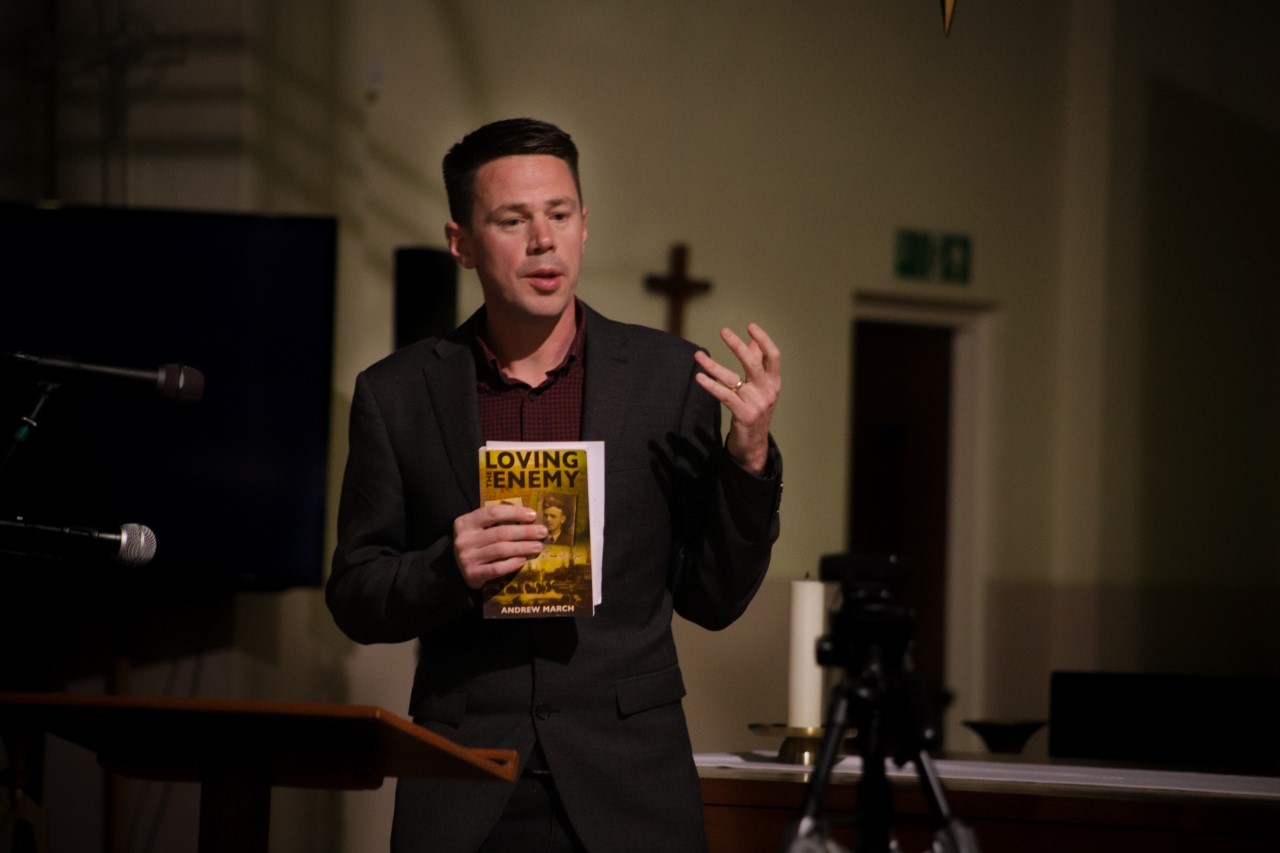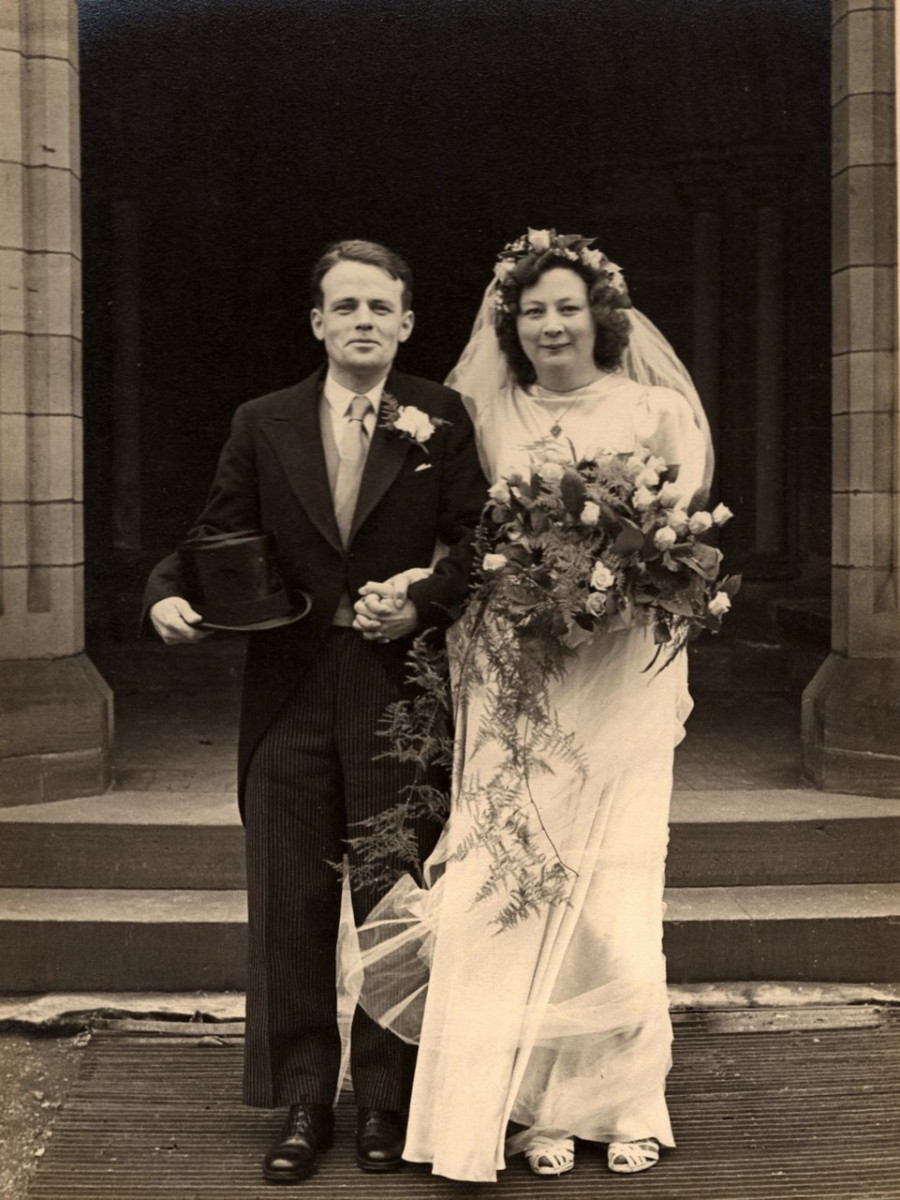
The Revd Andy March, Vicar of Allesley Park and Whoberley, writes about how his grandparents defied the hatred and enmity of warring nations to build an enduring bridge of love.
Eight years ago I visited Dresden with a group from England, including the Bishop of Coventry, the Archbishop of Canterbury, the Mayor of Coventry and other representatives of the city for the commemorations marking 75 years since the bombing of Dresden in 1945. I’d learned about this visit a few months previously and upon hearing about it, had an innate sense that I needed to be there. The reason for this was that Dresden was my grandmother, Rike Büttner-Wobst’s home city and, coincidentally, a twin city of Coventry – my own home town since I moved here to become a vicar in 2012. My grandfather, Fred Clayton was a young Englishman who went to Dresden at the height of the Nazi era with a desire to build bridges. He spent the year teaching in a school and through this got to know the Büttner-Wobst family with whom friendship endured even through the Second World War. After the end of that conflict, a correspondence sprang up between Fred and Rike, by now an adult. Out of their friendship love blossomed and they were married in April 1948 - a remarkable symbol of reconciliation and of the ability of love to trump hatred and break down barriers.

As someone who possibly embodies this international friendship more than most, It seemed right for me to be on this trip to Dresden. Little did I know how significant my experience in February 2015 would prove to be.
Firstly I was overwhelmed by the welcome I received. I was also amazed at the interest people had in my family story - I received coverage in the Church Times, national German television and BBC Radio 5. I had the honour of speaking about the story in the rebuilt Frauenkirche to a congregation that included the Archbishop of Canterbury. When I returned home to England I felt that I had been given the responsibility of telling my family story. In 2016 I took three months study leave to begin to write it down. Eventually the book was finished and it was published in English as “Loving the Enemy – building bridges in a time of war” in November 2021.
This story belongs to Germany as well as England. I was therefore very grateful to meet a Dresden resident Rainer Barczaitis in late 2016. He showed interest in the story and made it possible for me to make a visit to do a reading in 2019, for which he translated parts of the story. This was the beginning of the journey of my book to become a story for Germany as well as England as he went on to translate the whole book. This is another symbol of the fruitfulness of a friendship that crosses boundaries. So, on 14th February, the day most associated with love, I will be participating in the book launch for “Feindes Liebe” (literally “Enemy Love”), which will take place in the destroyed but rebuilt Frauenkirche - Dresden’s most beloved building, which, with its English cross on the top and the Coventry Cross of Nails on its altar, is a symbol of “enemy love” itself. Now, just as much as ever, the message needs to be heard that love can overcome hatred, even in a time of war, and nearly 80 years on, Fred and Rike’s story is as relevant as ever, and thanks to the publication of “Feindes Liebe”, their story can take root in the hearts of a whole new audience.